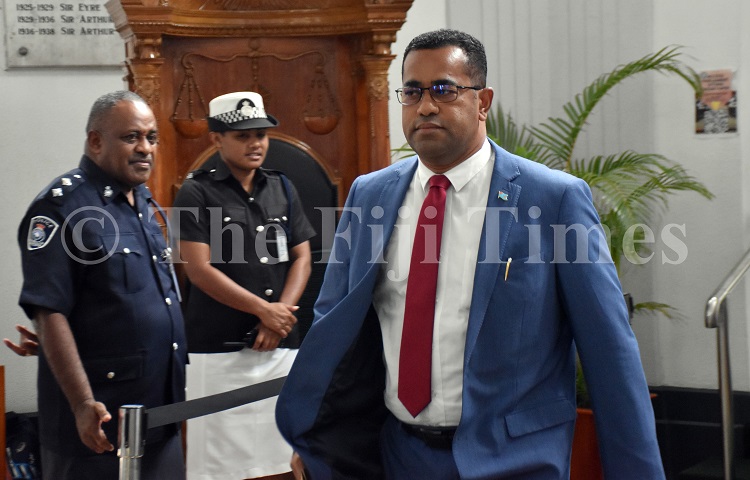IT is important to maintain the right balance between land development, the need for economic extension of a country and the absolute need for environment conservation, says Minister for Lands and Mineral Resources Filimoni Vosarogo.
Speaking in Parliament last week, Mr Vosarogo was asked to update MPs about his ministry’s plan to balance economic development with environmental conservation in the context of mining and land use policies.
Mr Vosarogo said mining was a crucial and critical component of any national development and more so for those countries with a large deposit of mineral resources.
He said the mining industry contributes to Fiji’s economy through job creation and employment opportunities.
“This sector, often both direct and indirect employment, positively impacts our local communities and of course, our regional economies.
“Direct employment in mining involves jobs such as the miners, technicians, engineers, surveyors, administrative personnel, and mine labourers, to name a few.
“These positions offer competitive wages and benefits attracting skilled workers and contributing to local economy and its stability.”
Mr Vosarogo said the three mining operations in Fiji employed about 2000 people, while the exploration sector employed another 100.
He said by the latest count, Tuvatu Mine in Nadi had 420 registered workers and eight expatriates, who had an estimate of $120,000 as their fortnightly pay.
“The Vatukoula Gold Mine on the other hand, employs 1058 workers, with 19 expatriates. Their pay bill hovers around $800,000 every fortnight.
“It is important to mention that during the COVID-19 pandemic, the mining sector continued operation, and continues to bring in the much-needed employment income for our local people and boosting economic activities in their communities.
“These companies’ employees were not laid off, but further recruitment for new staff were made.”
He also said the ministry always strove to strike a balance between development, emerging issues about environmental protection and economic growth.
Mr Vosarogo said this was enshrined in the Mining Act and facilitated through mineral exploration and mining using sustainable best practices. He said mining development approval could only be permitted if the various authorities gave their endorsements.
“For example, the EIA (Environment Impact Assessment) by the Department of Environment and the surface lease from the TLTB are a must before any mining lease is issued.
“Director Mines cannot approve any application if such endorsements from these authorities, within the mining approval process is questioned or not granted.”
To further ensure compliance, the ministry collaborates with other line ministries such as the Ministry of Fisheries and Forest, Department of Environment and Climate Change, Ministry of iTaukei Affairs and other agencies such as TLTB, WAF and the FRA.
“While application for minerals exploration and mining are being processed, these stakeholders are consulted to identify areas of ecological or cultural interests. If they are agreed upon, they would then be demarcated as exclusion or no-go zones in mining.
“Secondly, the ERA and Environment Management Plans are integral components of the application process for mining and special prospecting licence.
“Also, monitoring of compliance is undertaken on a quarterly basis during the mineral exploration and during the mining phase.
“It is a requirement for active mines to submit monthly reports to the Director of Mines, which requires updates on their environmental management strategies.
“For exploration, companies need to submit quarterly reports to the Director of Mines, which include updates on the environmental management measures that they have undertaken.”
Mr Vosarogo said under Section 16 of the Mining Act 1965, a performance deposit was paid to the Department of Mineral Resources, which was withheld as a guarantee of the company’s performance.
He said part of this deposit calculation also included and account for environmental rehabilitation, which was a mandatory requirement for areas disturbed from exploration activities.
“The planting of pines for the Nawailevu Bauxite Mines, 160,000 pine trees at Nawailevu site while another 5000 trees replanted at the second location for the sole benefit of the landowners of Nawailevu.
“Mining rehabilitation is value adding, taking into account post-mining land use for the benefit of the landowners.
“For any land use development, including mining, protection of the environment will remain to be a challenge, not just in Fiji as a developing nation, but elsewhere around the world where there are development needs on land and sea.”






